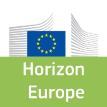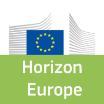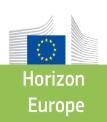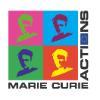Funded Projects
 An Intelligent platform for integrating climate services (TERRA); 2025-2028; £2M
An Intelligent platform for integrating climate services (TERRA); 2025-2028; £2M
According to Water Europe statistics, 90% of the global economy and 75% of jobs depend on water, while water-related risks are among the top 5 risks. Τhe term “water” includes both drinkable water (with respect to pollution) and hydrology water modelling (with respect to floods and sea level rise). As a result, the significance of modelling techniques, especially regarding water pollution, coastline management, flood prediction and sea level rise assessment cannot be overstated. TERRA envisions the creation of services and product chains that fuse Copernicus services with Digital Twins and AI technologies to provide solutions for coastline detection, coastline erosion prediction, flood risk assessment and mitigation, water pollution assessment and coastline modelling. TERRA provides the framework to promote its outcomes through the Global Earth Observation System of Systems (GEOSS).

On the use of Internet of Senses for the Cultural Heritage (ELLIE); 2025-2028; £2.8M
ELLIE research examines the impact of emerging technologies on creative processes, particularly in terms of technological advancements and innovation. Artificial Intelligence (AI), Generative AI, Internet of Senses and Digital Twins (DTs) are key technologies frequently explored in this context. ELLIE leverages these technologies within a virtual immersive world creating an innovative platform that opens up opportunities for novel services in the Cultural and Creative Industries (CCIs) domain.

Collaborative Innovation in 3D VLSI Reliability (COIN-3D); EU Horizon: 2024-2027;£1.2M
COIN-3D fosters strategic networking and knowledge exchange between leading European research institutions to enhance research management and commercialization capacities in the area of 2.5/3D chiplet architectures. The main target of the COIN-3D project is to enhance the AI research capacity of an entity being active in a widening country with the assistance of more developed countries trying to expose the pathways for innovation and research excellence.


Integration & Harmonization of Logistic Operations (EU Horizon: 101104278, 2023-2026) £8.5M
TRACE targets to an AI-driven universal platform related to planning, scheduling, optimization and events management as well as the use of blockchain technology to facilitate the real time conclusion of smart contracts and financial operations, thus, becoming one of the first attempts to provide an ‘intelligent cover’ upon the current logistics frameworks. TRACE will perform studies related to the barriers towards the new logistics era, the new business opportunities, the requirements for the legislation and regulatory frameworks and expose the benefits of the proposed approach in terms of the reduction for energy demand and emissions while limiting the operational costs for logistics stakeholders.


Enabling AI for Tackling Overgrowing Vegetation (QTS-Uni of Glasgow; 2024)
 Closed-Loop Data Science for Complex, Computationally- and Data-Intensive Analytics (EP/R018634/1-UK EPSRC 2018-2023) £3M
Closed-Loop Data Science for Complex, Computationally- and Data-Intensive Analytics (EP/R018634/1-UK EPSRC 2018-2023) £3M
Progress in sensing, computational power, storage and analytic tools has given us access to enormous amounts of complex data, which can inform us of better ways to manage our cities, run our companies or develop new medicines. However, the 'elephant in the room' is that when we act on that data we change the world, potentially invalidating the older data. Similarly, when monitoring living cities or companies, we are not able to run clean experiments on them - we get data which is affected by the way they are run today, which limits our ability to model these complex systems. We need ways to run ongoing experiments on such complex systems. We also need to support human interactions with large and complex data sets. In this project we will look at the overlap between the challenge someone faces when coping with all the choices associated with booking a flight for a weekend away, and an expert running complex experiments in a laboratory. The project will test the core ideas in a number of areas, including personalisation of hearing aids, support for travel planning, analysis of cancer data, and media recommendation systems.

Edge Analytics and Service Oriented Architecture for automotive use cases and in-vehicle networks (NXP 2020-2021)
This UGLA-NXP inductrial project focuses on researching algorithms, workloads, paradigms, and systems for a number of use cases around future, in-vehicle networks and Edge compute systems in collaboration with the NETLAB.
Risk Prediction Models in Congenital Diseases (NHS Golden Jubilee Hospital 2021-2022)
This UGLA-NHS project focuses on researching AI algorithms and methods for developping large-scale distributed learning system involding risk prediction Machine Learning and Deep Learning Models for congenital diseases in collaboration with the NHS Gloden Jubilee.

FedLearn: Efficient Federated Learning in Vehicle-to-Infrastructure Environments (BMW Research 2019-2027)
Internet of Things (IoT) and data produced by these IoT-devices are evolving towards an amount in which current architecture and network implementations can't handle this data anymore due to bottlenecks. These bottlenecks are related to bandwidth, latency, storage, energy and security. Sensing devices in an IoT environment become more and more able to perform computational tasks and intelligence locally. This ability emerged the area of Edge Computing and Edge Analytics. Edge Computing and Edge Analytics are trying to eliminating the bottlenecks of centralized data analytics by pushing intelligence (e.g. machine learning or analytic tasks) to the source of the data. This BMW-funded project is focusing on Edge Analytics and more specifically on investigating the possibility of pushing intelligence to edge devices. Further the project addresses the problems of current centralized IoT architectures in proposing a communication efficient methodology that is enabling high quality of analytics in an energy, bandwidth and network efficient way. Although a methodology of locally performed analytical tasks and global knowledge fusion strategies will be proposes. It aims to resolve latency, privacy and data storage issues of current centralized IoT networks in enabling the computational capabilities of IoT devices with intelligence.


 INNOVATE-Intelligent Applications over Large-Scale Data Streams (EU/H2020 MSCA-IF 2018-2020) €200K
INNOVATE-Intelligent Applications over Large-Scale Data Streams (EU/H2020 MSCA-IF 2018-2020) €200K
INNOVATE aims to offer a high quality scientific and professional fellowship, hosted at the University of Glasgow and coordinated by Dr Christos Anagnostopoulos, under the Research Group Essence: Pervasive & Distributed Intelligence, that will improve the research and professional skills of the successful Research Fellow. University of Glasgow will expand its networks and knowledge transfer through cooperation with Repado Ltd (Switzerland) and inCITES SARL (Luxembourg) as industrial secondments (partners) during the fellowship. Repado manages large-scale medical data coming from bio-medical robots/devices installed in healthcare facilities incl. hospitals, clinics, and laboratories involving remote interaction with geo-distributed services in private and public health sector. inCITES consulting is specialized in techno-economic analyses for business sustainability. This collaborative ‘grid’ will benefit the Fellow and University of Glasgow, as the industry partners provide their expertise and resources in the novel research activities of the fellowship. The Research Fellow Dr Kostas Kolomvatsos under the supervision of Dr Anagnostopoulos, will act in two real industrial working environments in completely different domains, while the SMEs will gain benefits from the INNOVATE outcomes/scientific dissemination.

 Glasgow Network Functions for Unmanned Vehicles (EU/H2020 2017-2018/RAWFIE Project) €100K
Glasgow Network Functions for Unmanned Vehicles (EU/H2020 2017-2018/RAWFIE Project) €100K
Glasgow Network Functions for Unmanned Vehicles (GNFUV) is an extension of the Glasgow Network Functions (GNF) framework that operates over Autonomous UxV infrastructures being particularly well-suited for operating over resourced-constrained and mobile Internet of Things (IoT) environments. GNFUV will leverage the UxV IoT infrastructure as a target platform to host diverse virtualised network functions across numerous physical UxV deployments in a transparent way. GNFUV aims to showcase the capabilities of autonomous and intelligent swarms of UxVs as hosting platforms for (virtualised) tasks, ranging from always-on monitoring and network topology self-management, to in-network, contextual information processing algorithms for edge-computing predictive analytics. GNFUV materialises the so-called distributed intelligence over autonomous systems.

 PRIMES: Personalised Recommendations and Internationalisation for MOOCs in European Schools (EU/ERASMUS+ 2016-2019) €430K
PRIMES: Personalised Recommendations and Internationalisation for MOOCs in European Schools (EU/ERASMUS+ 2016-2019) €430K
PRIMES aims to produce a novel e-learning platform, combining the wide reach and popularity of MOOCs with advanced artificial intelligence and data summarisation algorithms, to provide a truly personalised learning experience, fitted to the needs and characteristics of teenager (secondary school) students. To accomplish this, PRIMES brings together partners from several sectors (University, SME, secondary schools) and EU countries (UK, Greece, France, Netherlands). These partners will collaborate to produce high quality digitised learning content, to be delivered through the PRIMES platform in a manner that is tailored to the specific goals and needs of each individual student. PRIMES will further include pilot science, ICT and history courses, to be used, evaluated, and improved by students and teachers in the partnered schools.

